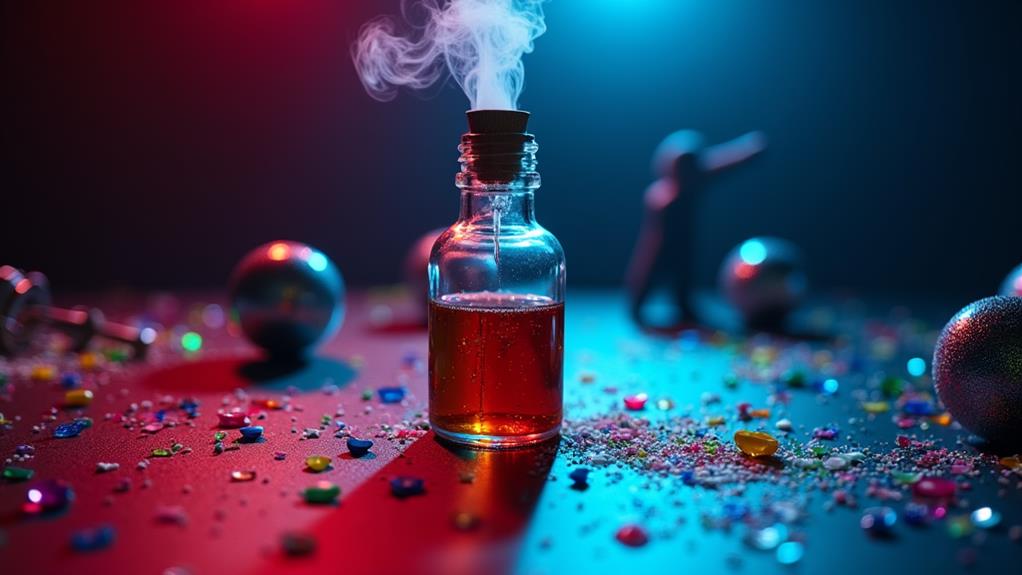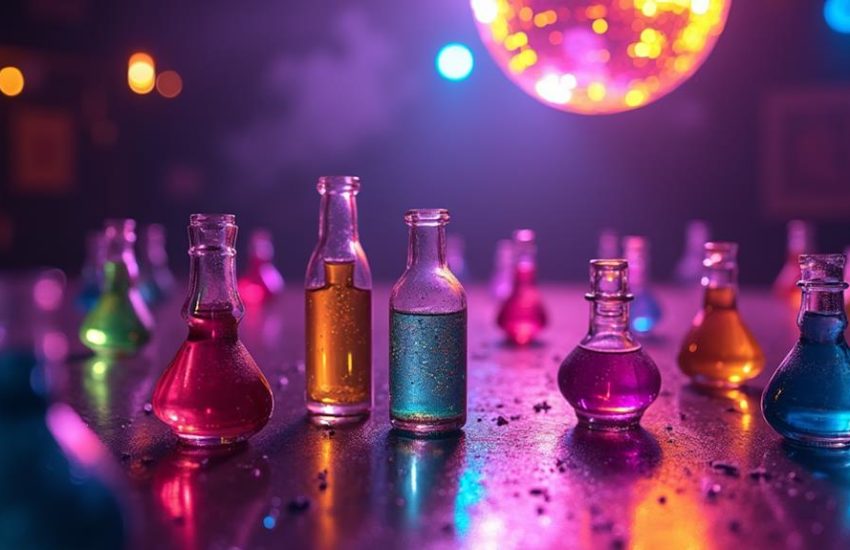Think Poppers Are Harmless? Think Again – The Myth-Busting Exposé
Poppers, volatile liquids containing alkyl nitrites, are often mistaken as harmless party drugs. Nevertheless, their use carries significant health risks. Short-term effects include headaches, dizziness, and nausea, whereas long-term use can lead to cardiovascular issues, vision problems, and even irreversible brain damage. In spite of common misconceptions, poppers can cause psychological dependence and are not approved for human consumption. Legal status varies globally, with some countries imposing strict penalties for possession and distribution. Understanding the true nature of poppers is vital for making informed decisions about recreational substance use. Exploring safer alternatives can provide similar benefits without the associated dangers.
What Are Poppers?

Poppers, a colloquial term for alkyl nitrites, are volatile liquid chemicals primarily used as recreational drugs. These substances have a rich poppers history dating back to the 19th century when amyl nitrite was first synthesized for medical purposes.
Initially prescribed for angina, poppers gained popularity in the 1960s as a party drug, particularly within the LGBTQ+ community.
The poppers effects are characterized by a sudden rush of warmth and euphoria, typically lasting only a few minutes. Users report improved sensations, relaxation of smooth muscles, and intensified sexual experiences.
Nonetheless, it's essential to understand that poppers can have serious side effects, including headaches, dizziness, and potentially dangerous drops in blood pressure.
In spite of their widespread use and cultural significance in certain communities, poppers remain a controversial substance because of health concerns and legal restrictions in many countries.
Chronic use has additionally been linked to irreversible brain damage, particularly in the cerebral cortex and cerebellum.
Health Risks of Popper Use

Numerous health risks are associated with the use of poppers, ranging from mild discomfort to potentially life-threatening conditions. Short-term effects include headaches, dizziness, and nausea, whereas prolonged use can lead to more severe complications.
Poppers' cardiovascular effects are particularly concerning, as they can cause rapid heart rate, low blood pressure, and increased risk of stroke or heart attack. Users may experience vision problems, including temporary or permanent eye damage. Inhalation can irritate the respiratory system, potentially causing chemical pneumonitis.
Poppers additionally pose a risk of methemoglobinemia, a blood disorder that reduces oxygen delivery to tissues. Recognizing symptoms of methemoglobinemia in emergency settings is essential.
Although the addiction potential of poppers is considered low compared to other substances, psychological dependence can develop. Regular use may lead to tolerance, prompting users to consume larger quantities and increasing the risk of adverse health effects.
Legal Status and Consequences

The legal status of poppers varies considerably across different countries and jurisdictions, leading to complex consequences for users, sellers, and manufacturers. In some regions, poppers are classified as controlled substances, whereas in others, they exist in a legal gray area.
This inconsistent regulatory environment creates challenges for law enforcement and consumers alike. The legal implications of popper possession, distribution, or use can range from fines to imprisonment, depending on local laws.
In countries where poppers are banned, users may face criminal charges, whereas sellers risk severe penalties for trafficking. Prolonged use can lead to serious respiratory issues, which further complicates the legal context for users.
Even in areas where poppers are technically legal, restrictions on marketing and labeling can impact their availability. Understanding the nuanced legal status of poppers is vital for those seeking to avoid potential legal consequences during maintaining a sense of community and belonging within certain social circles.
Debunking Common Popper Myths

Widespread misconceptions about poppers have persisted for decades, necessitating a thorough examination of fact versus fiction. Social perceptions and cultural influences have contributed to the propagation of several myths surrounding these substances.
Contrary to popular belief, poppers are not safe alternatives to illegal drugs, nor are they harmless party boosters. The notion that poppers are non-addictive is likewise misleading, as regular use can lead to psychological dependence.
Furthermore, the misconception that poppers are approved for human consumption is false; they are sold as room odorizers or leather cleaners to circumvent regulations.
Another common myth is that poppers have no long-term health effects, when in reality, prolonged use can cause retinal damage and weaken the immune system. Users have reported symptoms like blurry vision and difficulty recognizing faces.
Safer Alternatives for Recreation

Seeking safer alternatives for recreation is vital for individuals looking to avoid the risks associated with poppers. The allure of chemical stimulants may be strong, but numerous natural highs can provide similar feelings of euphoria and social connection without the potential health hazards.
Engaging in intense physical activities like dancing, running, or rock climbing can release endorphins, creating a natural rush. Moreover, meditation and mindfulness practices offer paths to altered states of consciousness without substance use.
Considering the serious health risks associated with poppers, including asphyxia and neurological damage, it is imperative to explore healthier options. For those seeking social bonding, participating in group recreational activities like team sports or outdoor adventures can encourage a sense of belonging.
Creative pursuits such as art, music, or writing can likewise provide fulfilling outlets for self-expression and emotional release. By exploring these alternatives, individuals can experience enjoyable recreational experiences while prioritizing their long-term health and well-being.
Call Us To Assist You
To sum up, the evidence demonstrates that poppers pose significant health risks regardless of their perceived harmlessness. As the adage goes, "appearances can be deceiving." The legal ambiguity surrounding poppers further complicates their use. By debunking common myths and highlighting safer alternatives, this exposé aims to educate and protect potential users. In the end, the dangers associated with poppers outweigh any recreational benefits, emphasizing the importance of informed decision-making and harm reduction strategies in substance use.


